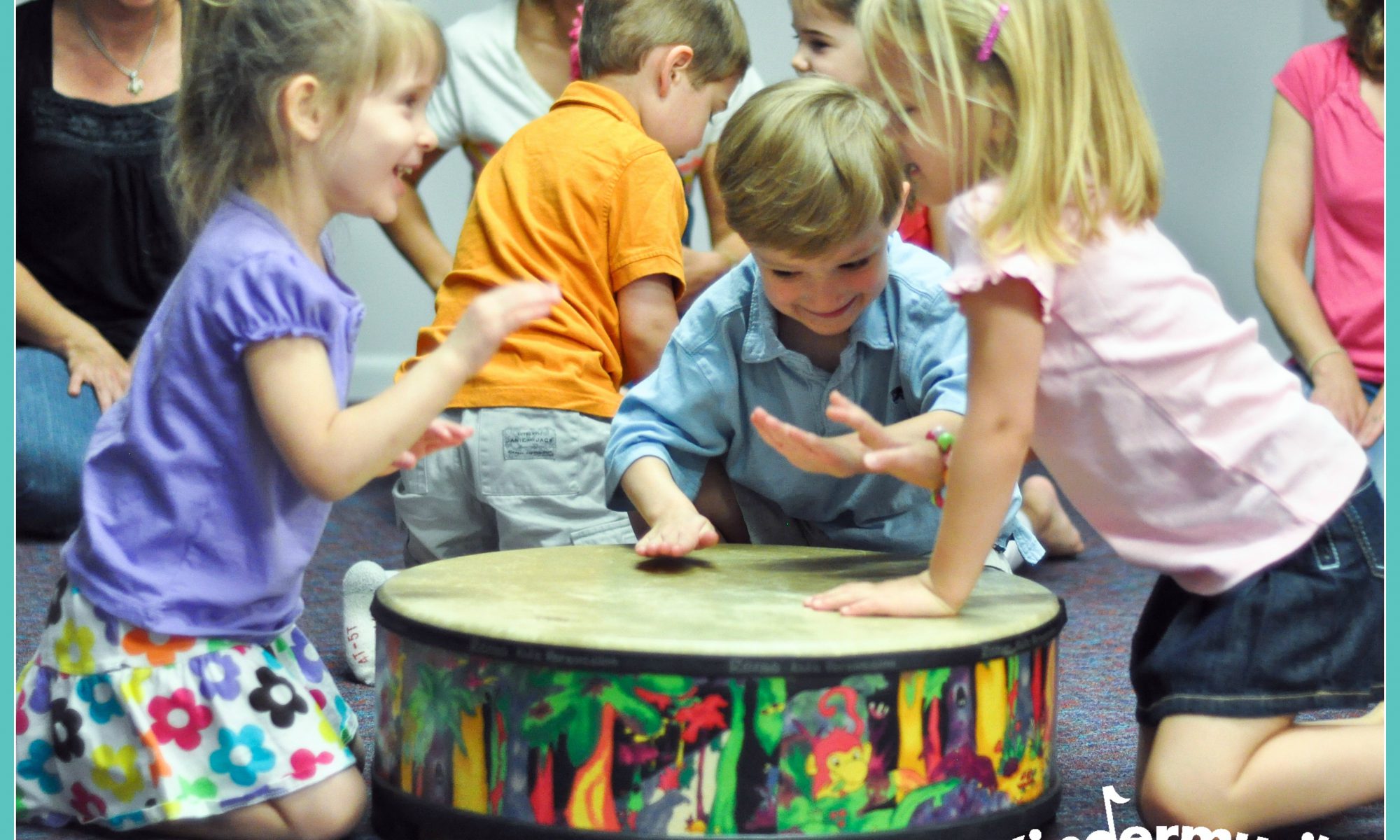“I just don’t see the point of going to music class with my young child. I can sing and dance and listen to music with my little one at home so why should I enroll in a class?”
We get that comment a lot and we GET it. Yes. Parents SHOULD “play music class” at  home. We believe so strongly in the importance of creating a musical home that we provide the music, instruments, or other resources—like our Pinterest Boards!— needed to make it easy for parents to integrate musical learning throughout the day. Those everyday musical moments make memories, imbed a love for learning in young children, and make life fun for the whole family! (Plus, we know how music can help make parenting just a little bit easier, too!)
home. We believe so strongly in the importance of creating a musical home that we provide the music, instruments, or other resources—like our Pinterest Boards!— needed to make it easy for parents to integrate musical learning throughout the day. Those everyday musical moments make memories, imbed a love for learning in young children, and make life fun for the whole family! (Plus, we know how music can help make parenting just a little bit easier, too!)
However, for young children to receive the maximum benefits of participating in learning (and playing!) through music, they need music at home and in a class group environment. Children thrive on both. In fact, research even shows that engagement, consistency, and longevity of participating in music classes directly correlate with the language, literacy, and other cognitive benefits of music.
Learning in a Group Matters
Learning in a group of peers, regardless of age, is different than learning by yourself—or with your child at home. Also, each group is unique from the next because each group is comprised of different individuals contributing to the group.
In music classes for young children, like Kindermusik, we intentionally create a learning environment where every participant contributes and takes away something unique based on their own experiences, both inside and outside the classroom. Parents notice this right away when each child can choose to sing, wave, jump, or even blink hello to their friends during the very first song.
 This experiential environment where the learning process is shared by everyone in the group—including children, parents, and the teacher—is called “social constructivism.” For example, in each class a Kindermusik educator guides the class towards a learning objective, such as steady beat, timbre, or vocal play, with children as active participants in the learning process. Providing children with ample time to reflect, compare, make choices, express opinions and preferences, and engage in problem-solving activities together teaches children not only the lesson focus but it teaches them how to learn.
This experiential environment where the learning process is shared by everyone in the group—including children, parents, and the teacher—is called “social constructivism.” For example, in each class a Kindermusik educator guides the class towards a learning objective, such as steady beat, timbre, or vocal play, with children as active participants in the learning process. Providing children with ample time to reflect, compare, make choices, express opinions and preferences, and engage in problem-solving activities together teaches children not only the lesson focus but it teaches them how to learn.
Children participate, collaborate, and contribute to the process in a group learning environment. So, while the lesson plan is repeated in classrooms around the world, the experience is slightly different based on each individual group. So, yes, “playing music” at home matters, but so does “playing music” in a group. Children need both to fully experience the life-altering benefits of music education.
Oh and by the way: Participating in a music class benefits parents, too. After all, parents make connections with other families in the same season of life. As parents, we can all use a group of friends who understand the unique challenges of potty training, sleeping through the night, healthy snack choices, best parks for a 2-year-old AND a five-year-old, and even which consignment or second-hand sales are worth attending.
 Want to “play music” in a classroom with other families? Find a local Kindermusik educator!
Want to “play music” in a classroom with other families? Find a local Kindermusik educator!
Contributed by Lisa Camino Rowell, a freelance writer in the Atlanta, Georgia, area.

